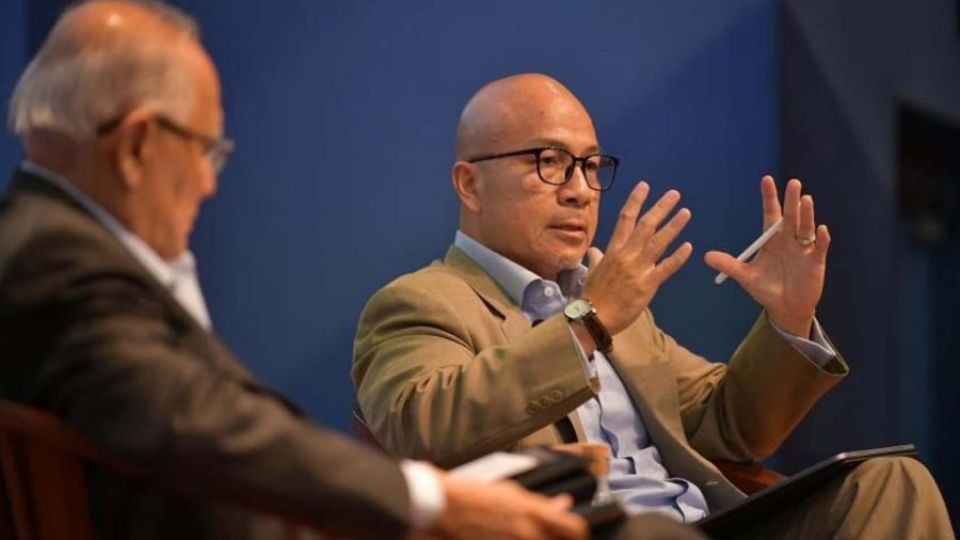SINGAPORE (ANN/THE STRAITS TIMES) – the Israel-Palestine conflict will carry significant geopolitical implications for Southeast Asia as various extremist groups in the region have drawn motivation from Middle East events, with the Palestinian cause being a focal point for their support.
This was said by international affairs scholar Professor Liow who stressed that this situation could pose challenges concerning security and community relationships, urging vigilance in monitoring these developments.
Prof Liow, who is dean of Nanyang Technological University’s (NTU) College of Humanities, Arts and Social Sciences, said political leaders in Asean seeking to deepen ties with the US will face difficulties if sentiments on the ground turn against Washington.
“The US has never been an unequivocally welcomed power in our region in the first place, in many countries…. a hangover of things that happened 20 years ago, the aftermath of 9/11, in particular Afghanistan and Iraq… is still very fresh in the minds of many Malaysians and Indonesians, and I think that script is going to play out again, and that is going to create difficulties for the leaders of these countries,” he said.
Malaysia Prime Minister Anwar Ibrahim, for example, openly supports the Palestinians and has said that Malaysia condemns Israel’s unlawful occupation of Palestine.
He had revealed on October 31 that US officials had questioned Malaysia’s envoy over the country’s refusal to condemn the actions of Hamas and label the group as terrorists.
War broke out after Hamas on October 7 launched a surprise rocket attack killing 1,400 people in Israel, which retaliated with extensive airstrikes and has launched a ground offensive in Gaza.
US president Joe Biden had initially vowed to “stand with Israel”, but his administration has now shifted its focus to the humanitarian crisis in Gaza, as the death toll soared beyond 8,500 amid Israeli strikes.
Prof Liow said Datuk Seri Anwar’s long-standing support for the Palestinian cause is “perfectly understandable”, but problems will arise if the Malaysian government wants to openly cooperate with the US.
“It was an issue 20 years ago, right? The Malaysian government was very keen on furthering their relationship with the United States, but the people were very anti-US because of the Iraq invasion, and they had to manage it,” he recalled.
“The challenge for our neighbours today is that the domestic political configuration today is far more brutal than it was 20 years ago, so that will be particularly tricky.”
Speaking at the National University of Singapore’s Shaw Foundation Alumni House, he outlined how the world is “at a crossroads, as various political, social, and economic forces contrive to push back against unbridled globalisation and interdependence, in the process, undermining the prevailing Global Order”.
The challenge for Asean is how it can “advance the collective interests of disparate member states against the backdrop of a Global Order in a state of flux”.
He said “continued American disinterest in global trade will invariably affect Southeast Asia, a region that is deeply plugged into international trading networks”.
Asean would also have to grapple with “institutional balancing” – efforts by China to create new institutions to challenge American leadership and dominance of prevailing ones.
This would potentially affect Asean, “putatively the premier institution for Southeast Asia”.
Amid changes to the Global Order, Asean “must consider how to exercise agency in terms of making, modifying, and shaping, or even preserving, the rules, not least on its own turf”, he added.
During the Q&A session, Prof Liow also talked about how Myanmar’s military coup has “somewhat divided” Asean.
Asean is “trying to stick very closely” to the five-point consensus reached with the Myanmar junta in 2021, but “the junta at this point doesn’t seem too interested”, he said.
The five points are, namely, an immediate end to violence in Myanmar; dialogue among all parties; the appointment of a special envoy; humanitarian assistance by Asean; and the special envoy’s visit to Myanmar to meet all parties.
Prof Liow noted that the junta’s position remains that “until we resolve the violence, we’re not going to be able to talk about this” and the Thais had, for their own reasons, started parallel discussions with Myanmar.
“I’m not sure about the extent of coordination between the Thai process and the Asean process, but there really should be efforts to try to, if not align, at least to synchronise and build on each other’s efforts,” he added.
Prof Liow also said it is not easy for Asean member states to agree and move forward as a group.
“Why is it you need so many meetings on the Asean calendar? Look at the issues that Asean wants to tackle, and look at the reality that… you have 10 countries probably coming at the same issue from 10 different positions. It is not easy to get everyone to the same destination.”







